

Vasileios Sofitis (PhD Candidate University of Athens – Postgraduate Researcher, Institute of International Relations
(Yποψήφιος Διδάκτωρ στο ΕΚΠΑ και δόκιμος Ερευνητής στο Ινστιτούτο Διεθνών Σχέσεων)
(σύντομα το κείμενο θα αποδοθεί στην ελληνική γλώσσα)

(English) OCALAN’S CAPTURE REVISED* *With an assiduous analysis of the Greek involvement By Vasileios Sofitis (PhD Candidate University of Athens – Postgraduate Researcher, Institute of International Relations)
Introduction
Abdullah Ocalan’s “Hollywood – like” capture back in 1999, apart from temporarily receiving enormous global attention, resulted in a long term intelligence debate regarding the factors’ and stakeholders’- deliberate or reluctant- involvement that made it feasible. More than 15 years later, the Kurds’ leader’s arrest still remains a discussion topic among intelligence experts mostly as a lesson learned – a classical paradigm of intelligence failure… or success, depending each time on the eye of the beholder. However, no matter how striving one’s attempts are for producing a precise analysis concerning intelligence issues and events, uncertainty still remains due to the limited or null access to relevant official classified documents. Hence, the above mentioned lack of transparency on the events that took place ‘condemns’ analyses to be practically assumptions based on statements made and interviews given by officials. The present analysis does not differ in terms of precision but is actually trying to make the difference by interconnecting and interpreting data and previous analyses available, moving beyond a typical superficial, and oversimplified explanation in respect of more prevailing scenarios; at the same time it is trying to point out those elements with extra value … intelligence wise. Finally, the author countersigns Mantzios’ argument, “to suspend Greece’s guilt- rather than absolve it- so as to reopen what one news-outlet has dubbed the ‘Ocalan Files’.
Historical Background
Abdullah Ocalan was born in a village in eastern Turkey back in 1948. He studied political science at Ankara University, where he is believed to have become a Maoist. In 1973 he organized a socialist group, initially including both Kurdish and Turkish militants, with the goal of a socialist revolution in Turkey; in reality though he was incubating the ‘Kurdistan Workers Party (PKK)’ – a political organization with militant wing in order to fight for the rights of the Kurdish minority that finally established on November 7, 1978. The first shot of PKK’s armed struggle against Turkish authorities was fired in 1984 and within two decades some tens of thousands of fatalities were counted making the “Liberation of Kurdistan” not at all unthinkable. Soon PKK was included in the terrorist organizations’ list by Turkey, a stance adopted by several countries and international organizations including the USA, Australia, the EU and NATO.
The chronicle of the events
The Kurd rebel, or the notorious warlord if you prefer , had spent much of the last 15 years of his life in Damascus where he had his headquarters organized. However, in October 1998 he was forced to abandon his safe haven when Turkey considered his harboring from Hafez Al-Assad’s regime as a form of ‘casus beli’; it was that moment when Ocalan’s manhunt started. For the next four months, as the PKK leader sought refuge in Russia, Europe, and Africa, the Turkish – American diplomatic and intelligence apparatus sought to cut off his escape routes. As a consequence of the tremendous diplomatic and intelligence mobility, the head of the Kurdistan Workers Party was forced to bounce like a ping – pong ball from one capital to another, desperately seeking to ensure potential shelter. Pressure applied to all potential patrons of the Kurd leader led to him being the most wanted man in Turkey and at the same time the most ‘officially’ unwanted man in every European country. On the other hand, no government had the courage to extradite Ocalan to Turkey.
“With the public support of the Russian communists, he had reason to hope for refuge in Moscow. But that failed, and so Ocalan invoked his close ties with the ex-communists ruling Italy, and arrived there demanding political asylum. That request touched off an embarrassing imbroglio during which the new, Social Democratic government in Germany publicly admitted that it was too afraid of PKK terrorism to pursue its own arrest warrant against Ocalan, and the neo- communists in Rome vacillated between longstanding sympathy for the PKK and respect for international law. Ultimately, Italy rejected both Turkey’s extradition request and Ocalan’s asylum demand, and expelled him. Relentlessly pursued by a succession of Turkish governments from across the political spectrum, the Maoist leader unsuccessfully sought asylum in various European countries – all of which recognized that he was now a liability not worth the risk to their political and economic relations with Turkey or the United States. Finally, after spending a few days at the Greek embassy in Nairobi, Ocalan was either forced out (the PKK version) or left the compound on his own accord (one of the Greek versions), whereupon he was seized and sent to Turkey.” Responding to a question regarding how they managed to capture Ocalan, Turkish Prime Minister Bulent Ecevit used a turkish proverb “let us eat the grape and not ask where it came from” obviously trying to avoid revealing the international cooperation that took place while at the same time trying to protect their partners from the Kurd diaspora wrath.
Composing the puzzle
The Israelis
In early October 1998, when Ocalan abandoned Syria to seek support from Moscow, Israeli intelligence agents were monitoring his departure from Damascus. Gordon Thomas differentiates Israel’s involvement placing it not earlier than late November when the Turkish Prime Minister Bulent Ecevit telephoned Netanyahu and asked if the Israeli secret services could facilitate Ocalan’s capture.
Yet “the Israeli role didn’t involve trapping Ocalan in Nairobi, according to American officials, who would be unlikely to reveal such a role if it existed. Israel on the other hand took pains to deny having any direct role in his capture” even though Turkish officials said Israeli intelligence helped them to track him in Moscow.
The Americans
Israel’s contribution seems to be of less importance in comparison with the one provided from Washington which included intelligence flow, diplomatic pressure to other countries, and operational aid in orchestrating Ocalan’s kidnapping in Kenya. After initially denying any direct involvement, US officials later acknowledged that Washington played the central role in tracking him down and delivering him to the Turkish authorities.
The fact that the US was involved in organizing a global manhunt in violation of international law and basic democratic procedures was impressive to say the least; yet “it was clearly a quid pro quo with the Turkish regime, an example of imperialist “realpolitik” in its most cynical and reactionary form” since the US was somehow paying off the valuable Turkish services of the Incirlik air force base provided during the Northern Watch Operation few years ago.
However, the most crucial aid was provided through ‘other means.’ For a long time “the US Information Agency pumped out pre-digested summaries of ‘world opinion’ as part of its propaganda operations in the hope that these will be reproduced”; hence they managed to criminalize the figure of Ocalan by keeping the political facts of PKK conveniently obscured. That was a part of a master plan aiming to shape public opinion worldwide in favor of the Turkish point of view regarding the Kurdish issue. Additionally, if PKK’s biggest weaknesses, namely diplomacy and international relations, are taken into consideration then it is understandable why diplomatic pressure by the USA and Turkey aiming third countries in order to deny the right of political asylum to the Kurdish leader was successful.
The Kenyans
“As far as the Kenya’s involvement is concerned, the initial account by Foreign Minister Bonaya Godana regarding Ocalan’s capture, was that his country played no role. But Kenyan sources told news agencies that President Daniel Arap Moi, in the hope of keeping good relations with the United States, had overruled Godana and ordered that Ocalan be taken into custody and handed to Turkey.” After all only the US had the size of influence in Africa that could impose such demands. The New York Times additionally revealed that according to US officials it was the American and Kenyan intelligence and law-enforcement team in Nairobi that quickly detected Ocalan’s presence and reported it to Turkey. Far from that, Kenyan authorities deliberately detained agent Kalenderides at Nairobi airport resulting to his missing the flight to South Africa where he was ordered to oversee Ocalan’s political asylum process there along with George Bizos(Nelson Mandela’s Greek-origin lawyer). Finally, according to Kalenderides it was the Kenyans that proceeded to the communications cut off of the Greek Embassy that led to its isolation and lack of guidance from Athens. Again it was them that denied the use of the Greek embassy’s vehicle for moving Ocalan to the Nairobi airport and also forced the separation from his escorts whilst the driver that drove him to the Nairobi airport was a Kenyan security officer working with the Turkish squad.
The Greeks
While the US, Israeli, and Kenyan involvement may be fairly proven, one way or another, the Greek governments and the Greek agent’s Kalenterides’ roles remain obscure and controversial. According to Kalederides, his involvement starts on October 10 1998 when he was ordered to escort Ocalan from Athens to Moscow. In the meanwhile, Ocalan had managed to sneak in to the country with the help of Kostas Mantouvas, a former member of the Greek Parliament and personal friend of his, but without the official government awareness.
After managing to obtain a visa the same day, he flew to Russia, on a private aircraft hired by the Greek government, where unlikely his awkward welcome in Athens the Russians welcomed him officially. However approximately three weeks later Yeltsin’s government could not resist the US and Turkish pressures to expel him, hence sent him to Italy with the consent of the Italian Prime Minister Massimo D’ Alema. Ocalan tried to return to Russia after less than two months in Italy as the imposed Turkish trade embargo had ensured that any attempts for European aid would have been impossible. “Upon landing to Russian soil he was advised to remain in the aircraft for days as he was being targeted by the Russian mafia” . In the meanwhile the Greek government had asked Ocalan not to return to Greece, and if he had any inquiries he should have only contacted the Deputy Speaker of the Greek Parliament.” Again it was a Greek ‘deus ex machine’, that saved the day. This time was Andonis Naxakis, a retired officer that provided a private airplane and assisted Ocalan’s return to Athens without the Greek government’s awareness.
According to Kalenderides, two days later he accompanied Ocalan to Belarus planning to take a cargo plane from Minsk to the Netherlands where he could seek a hearing at the International Court of Justice. However, the plane did not show up and everybody returned to Athens, and headed to Corfu in order to avoid being spotted by hostile agents where Ocalan along with Kalenderides stayed for two days. At the same time the Greek government was trying to convince him to smuggle to Nairobi, where the Greek Government had agreed to shelter him temporarily at its embassy . That was either because there was no other option available or because that was what the Americans dictated to the Greeks. Ocalan finally agreed.
The day after their arrival to Kenya, Kalenderides contacted Nelson Mandela’s Greek lawyer, in order to help Ocalan to seek asylum in South Africa but the Kenyan government made it impossible to happen. The next days the Greek ambassador found himself in plight trying to explain to the local authorities about the embassy’s guests, and at the same time he was asking for specific directions from Athens regarding Ocalan’s fate. The Greek government must have come under an escalating pressure since Vassilis Papaioanou, a senior aide to Theodoros Pangalos, Minister of Foreing Affairs at that time, initially told the ambassador to “act like a shepherd and whistle indifferently”. Nevertheless he made a U – turn and keenly asked to immediately find a way to “keep Ocalan away from national colors”. Ocalan, rejected the eviction order and instead filed a written request for political asylum from the Greek government. As Athens intensified the pressure for his removal, the women Ocalan had brought with him threatened to set themselves on fire in the embassy garden. Kalenderides at that point suggested the ambassador to make cautious and legal moves since their primary mission was to protect Ocalan’s life. The ambassador, who as a diplomat and a lawyer, had deep knowledge of international law agreed and counter proposed to Athens the transferring of Ocalan to a UN building in Nairobi, where he could ask for asylum but he strangely received a strict refusal.
Kalenterides denied orders regarding Ocalan’s forcible eviction claiming practical reasons something that was both a valid and a lame excuse at the same time. Valid because Kalenderides was neither equipped nor had the manpower to execute such an order; and lame because for Kalenderides, it was unthinkable to leave the Kurdish leader exposed. The calls for Ocalan’s immediate removal continued with Greek officials begging, or even threatening the Greek Intelligence Services (EYP) agent were in vain. Due to the circumstances, Athens decided to dispatch a security team to enforce the orders but that was never actually came to realization since the case took a completely different turn. The Kenyan Ministry of Foreign Affairs demanded a meeting with the Greek ambassador (who by the way had lost contact with Athens owing to the communication cut off) during which it was revealed that they had proof of Ocalan’s hiding in his residence. Thereupon they gave an ultimatum with a two hour window to transfer Ocalan to the airport where he would then fly to a country of his choice. The ambassador transferred the ultimatum to the Greek Minister of Foreign Affairs and to Ocalan, who both agreed. Soon Ocalan found himself away from his aides and his Greek protectors when the latter were banned by force to enter the same car as his and boarded alone on a plane where he was finally arrested by Turkish Intelligence Service MIT agents and flew to Turkey.
Conspiracy, Treason or Fiasco
It is rather impossible to make a one word description to fit all events that led to Abdullah Ocalan’s kidnapping and extradition. The case was obviously multiparametrical with numerous entities involved, several alliances and various motivations of those engaged. Far from that, the cross checked information regarding details of the events is insufficient to let anyone make robust conclusions. After all, the so-called covert operations leave minimum or null hints concerning the actual protagonists as well as their modus operandi. Be that as it may, with an outcome based approach Ocalan’s case can be interpreted in a simplified fashion as a double-victory plus a double-defeat case that included:
– A Turkish diplomacy and secret service victory.
– An interstate victory against terrorism (if we take for granted that PKK is characterized as such).
– PKK’s defeat (mainly because of the loss of its leader).
– A Greek secret services defeat, and Greek government’s credibility loss.
The conspiracy version
Even though Ocalan’s capture was enthusiastically celebrated with the Turkish media boasting of a tremendous MIT victory (serving domestic political exploitation and out of border propaganda), was not exactly the case. The evident existence of the opposite viewpoint casts doubt on the widely accepted judgment and thus cannot be discounted as being too far from the truth. What we actually experienced was much of a conspiracy exemplarily organized by the Turkish and the US governments that managed to mobilize all means worldwide in order to isolate PKK rather than a demonstration of MIT’s capacity. It should be acknowledged though that the intelligence provided catalytically helped Turkish and US foreign policies to apply targeted pressures against any nation harboring Ocalan or intending to grant him asylum. On the other hand, if we dogmatically consider PKK a terrorist organization, as presented, then what happened was a de facto victory of the international front against terrorism. Yet as time proved, the victory was temporary; and was concerning a battle and not the war since Ocalan continued to have impact on the Kurdish issue at the international level.
The treason version
As far as the Greek government and the Intelligence Service’s roles are concerned, two equally negative scenarios prevail. The first one presents the Greek government having a leading role as part of a plan to give Ocalan away. The second one that presents the Greek government and EYP to have fully tried to protect Ocalan but their manipulations and especially EYP’s amateurism proved tragic. Regardless, Greece was responsible for Ocalan’s protection Greece is accountable for his capture.
Greece’s accountability was validated by a May 1999 Kurdish popular court ruling sentencing the chief of the EYP and two Greek security officials to death for their role in Ocalan’s capture. Additionally it was “Ocalan’s companions that later accused Foreign Minister Pangalos of deliberately shipping him to Nairobi because the Greek minister knew that the Kenyan government was subservient to the United States and Israel.” Complementary to that claim, there were conflicting reports about whether Greek officials secretly cooperated with the Turks and deliberately sent Ocalan into a trap. Ankara “publicized intelligence showing details of the way in which the Greek authorities had smuggled the Kurdish leader to Greece and Kenya and supplied information to the Kurdish community implying that the Greek authorities had surrendered Ocalan to Turkey.” Moreover, in one “telltale sign that they did, Greek police evicted Kurdish refugees from a tent city near the center of Athens hours before Ocalan’s arrest – apparently as a precaution against the expected violent reaction.” That must have been the reason why Ocalan’s Greek lawyer Yiannis Rahiotis has filed a compensation claim alleging that the Greek state betrayed him after offering assurances of safety.
Consequently, if the treason version is the valid one, the ‘peculiar’ Greek government’s decision to give away its ally to Turkey needs to be decoded. Was it an under the table deal of the vainglorious Greek PM Konstantinos Simitis that did not want to risk Greece’s entrance to the European Monetary Union and followed other EU members’ instructions? Was it the usual small states vassalage syndrome or the dependence relationship that made Greece’s “voluntold cooperation” a one way solution? These questions remain unanswered.
The fiasco version
No matter how well grounded the conspiracy scenarios regarding alien evolvement (CIA, MOSAD and MIT combined intelligence operation) are, or even if the treason version is accepted, EYP’s vice namely the lack of professionalism that made Ocalan’s capture more feasible have to be highlighted.
Particularly as Miron Varouhakis appositely points, “the Greeks exposed the ineffectiveness of their intelligence apparatus, which violated numerous fundamentals of intelligence tradecraft”.
– Communication Vulnerability
There was astonishing inexperience and staggering innocence displayed about communications surveillance – and information operations in general. Greek diplomats appeared to be unaware of the importance of forbidding the Kurdish leader to use his unencrypted cellular phone while under their protection. They also failed to comprehend the degree to which their diplomatic communications were vulnerable to outside penetration. Moreover, the use of conventional communication systems and ‘semi-open language’ made it child’s play for the hostile intelligence services. Apparently, “the Greek defense and intelligence planners had severely underestimate the degree to which Greece’s defensive infodominance – that is its ability to defend the integrity of its information and communications system – had been compromised by the US and possibly other countries.”
– Kenya’s poor choice of hideout
Ocalan’s desperate seek for a safe hideout to rally political support for the Kurdish people and the limiting down of his choices made him soon lose initiative. Bona fide he decided to follow Greece’s assurances to temporarily settle in Nairobi while the Greek government would have tried to help him get asylum elsewhere. “Whatever the political foundations of the decision to take Ocalan to Kenya, Athens neglected important operational considerations, dooming the effort virtually from the start.” If not chosen in purpose (the treason scenario), then Nairobi was at least a poor choice, given the strong US presence after the bombing of their embassy there, a year earlier. It seems like no situation assessment and operational considerations were taken seriously.
– No clear chain of command
The simultaneous involvement of several officers and their direct communication with agent Kalenderides, was something unusual that declined from standard procedures. “Testimony during the 2003 trial and leaked Greek government reports make clear that ministerial rank officials were involved in the macro and micro-management of the operation. Such breakdowns in the routine chain of command can signal failings in authority above; create uncertainty in the field; and permit, or force, field operators to question and even challenge their orders, especially when a core mission has changed so clearly and rapidly.” Additionally alien interference to the intelligence service must have created a feeling of insecurity especially to the agent in charge questioning his own role in the mission as well as his superiors’ intentions about him. Kalenderides after all was prejudiced since, as he later revealed, Ocalan himself had told him that his mission assignment meant that the Greek government considered him disposable.
– Kalenderides’ controversial role
Seemingly no one else was more qualified and appropriate to run the mission other than Kalenterides –a distinguished army officer with the added value of extra qualifications including fluency in the Turkish language as well as deep knowledge of the PKK issue, Turkey, and foreign affairs. Even though Varouhakis recognizes the distinct advantages of selecting Kalenterides, at the same time he considers this selection problematic charging him with the main –if not the only– cause of the failure due to his constant refusal to follow his superiors’ orders. He argues that there should have been some considerations regarding his profile suitability “going so far as to cite Kalenterides’ family roots and the tradition of nationalism that it implied as a cause for his ineptitude.”
However, the decoding of Kalenderides personal account of the events presented on an interview further interprets his attitude. Kalenderides actually appears to have developed an emotional bond with his dependent and have felt great admiration for him. He seems to have been mesmerized by Ocalan’s personality, action and his struggle to liberate his people, identical to his forefathers against the Ottoman Empire. At one point of the interview he confessed that he was happy to meet Ocalan and pleased that he was assigned to accompany him because it was a good opportunity to get to know the Kurd leader closely. Additionally when it was discussed to sneak Ocalan to Kenya, Ocalan appeared to have asked for Kalenderides’ personal opinion proving that their relationship was founded on a mutual trust base. Finally Kalenderides characterizes the day Ocalan was captured as a tragedy that made him as well as the Embassy personnel burst in to tears.
The Greek agent’s role became even more complex and suspicious later when EYP officials presented Kalenterides to have acted as an interpreter to an Ocalan’s meeting with the Vice President of the Greek Parliament in December 1998 without been assigned from EYP. That fact came to reinforce a former report of Espionage Division Director that a specific operational component of EYP was acting autonomously and was prone to disobey official government orders.
Concludingly, Kalenderides was an enthusiastic, qualified officer that appears to have faced an ethical dilemma during his mission’s alternation of orders. Committed as he was to the higher purpose that was his initial mission to protect the Kurd leader, he made a situation assessment and chose to disobey four times the orders wired to him, bringing the Greek government in a plight. On the other hand using strictly professional criteria, Kalenderides can be characterized as an amateur that lacked discipline and broke the military oath to execute willingly his superiors’ orders without contradiction. He was definitely not supposed to “pass judgment on the political, diplomatic, and intelligence matters that drove the changes in his mission”.
On the other hand, one could claim that no ideological or ethical factor actually existed and that Kalenderides court testimony and interview could function as a lightning rod for criticism both inside Greece but most importantly among the Kurds. In any case it is unfair to make him the scapegoat of the case based on the assumption that had he chosen to kick Ocalan out of the Embassy in Nairobi, the consequences would have been milder and the Greek government would not have lost face internationally. After all it was proved above, the number of entities involved, whether open or concealed, and the many unstable factors created such a complex case that the outcome cannot be charged on a single person’s actions.
Epilogue
Abdullah Ocalan’s kidnapping and extradition capture is less of an important MIT’s success and more of a foreign policy victory of the Turkish State. It was Turkey’s catalytic diplomatic pressure that managed to make impossible Ocalan’s quest for political and physical sponsorship among pro-Kurd states hence narrowing down his freedom of maneuver and practically facilitating his arrest. However, the glorious success would have never happened had the extensive US and Israeli intelligence support not been provided.
At the same time Greece’s involvement remains byzantine and even after all these years, its blame is “suspended awkwardly between incompetence and betrayal.” If the betrayal version is the valid one, the ‘peculiar’ Greek government’s decision to give away its ally to Turkey needs to be justified. Moreover, it still remains unclear whether Greeks in Kenya were misled, tricked, forced, or just wanted to relieve themselves of a major national problem
By any means EYP’s amateurism and pathogeny displayed during the management of the case should be acknowledged. EYP’s criticism regarding its professionalism appears perfectly valid and irrefutable. Two categories of fatal intelligence mistakes could clearly be identified; systemic ones, and personal ones. The systemic ones refer to the way EYP appeared to function, its course of actions (mostly communications vulnerability and infodominance), and its hierarchy among others; while the personal ones refer to the actions (order denial) of the protagonist agent involved –namely Savas Kalenterides. However, solely blaming Kalenterides is an oversimplifying, unfair, but very convenient to some, interpretation of the complexity of the events.
EDITOR: SOFIA TZAMARELOY Inteligence Reseach Team Coordinator.

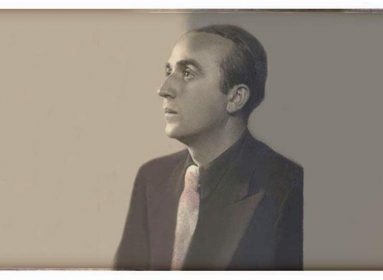



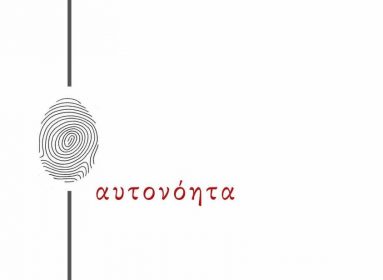

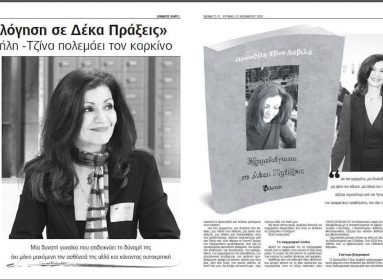
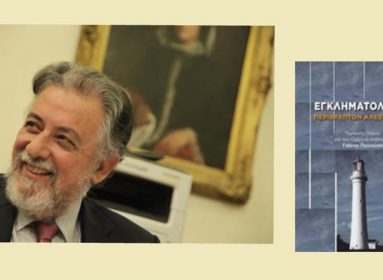
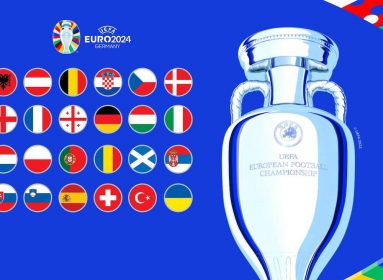








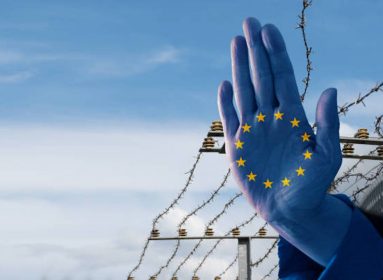
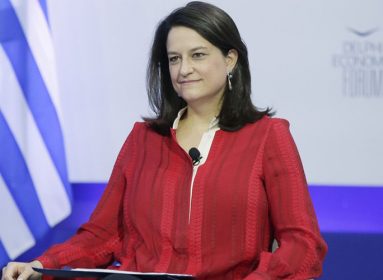
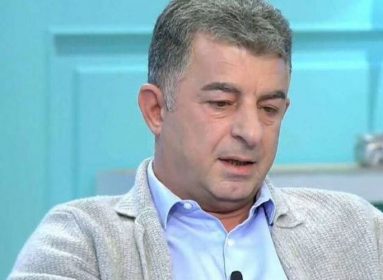
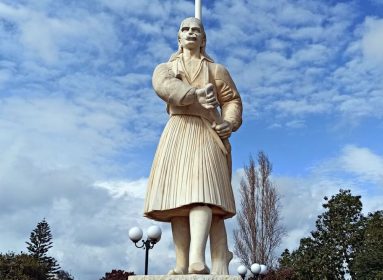
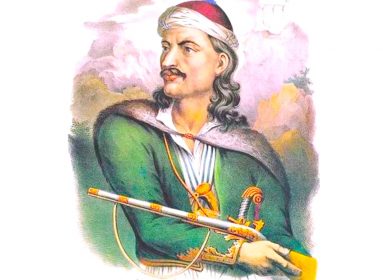
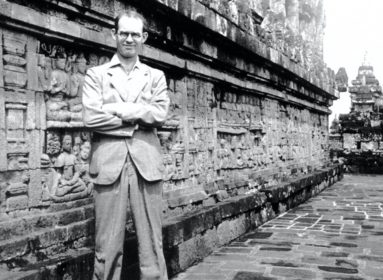
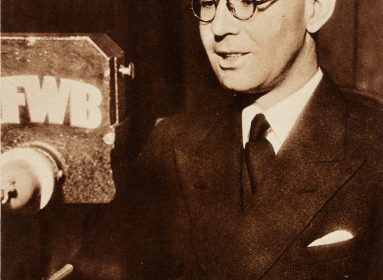
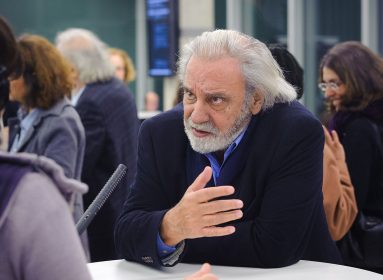



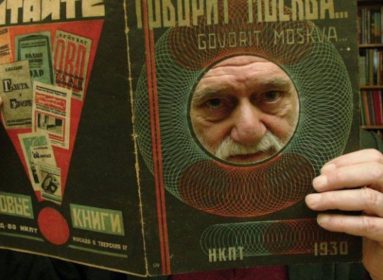
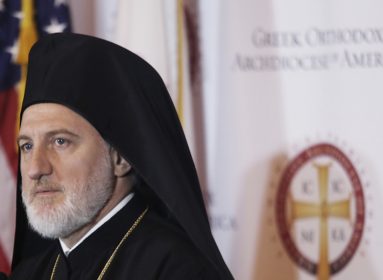
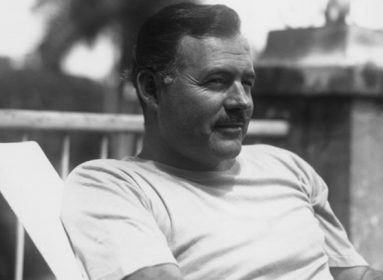

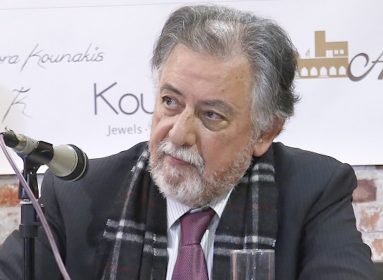
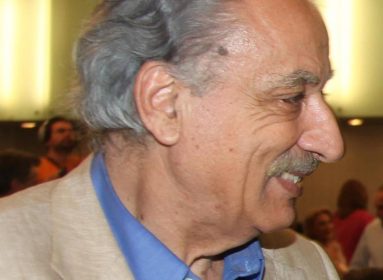
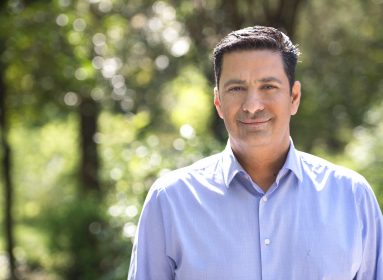
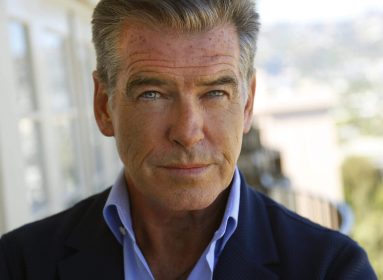
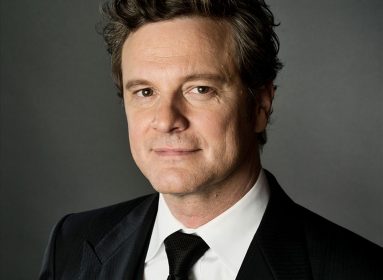


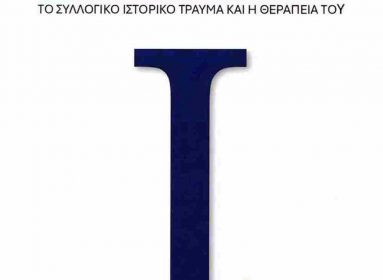
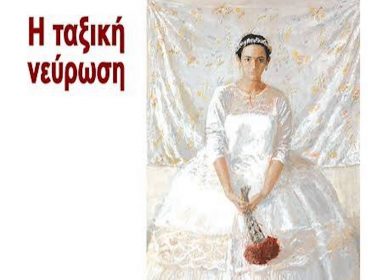
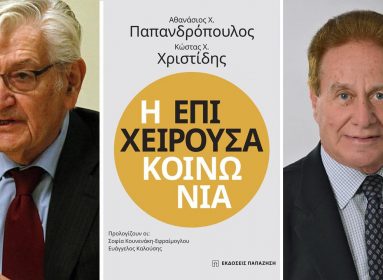
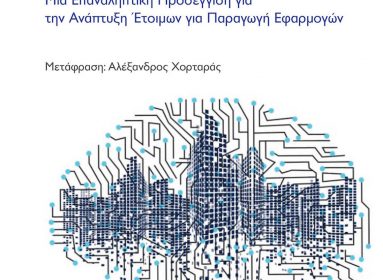

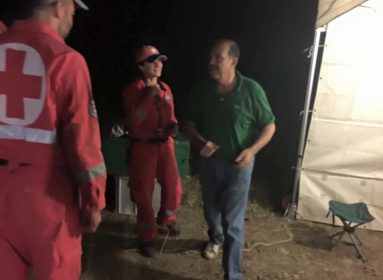
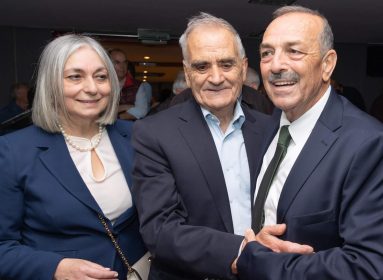


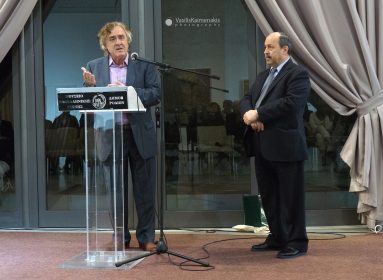
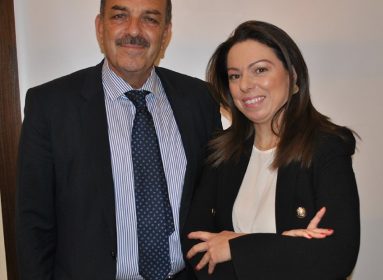
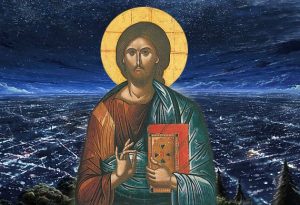


 Το σκίτσο είναι του Βαγγέλη Παυλίδη
Το σκίτσο είναι του Βαγγέλη Παυλίδη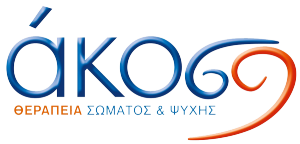
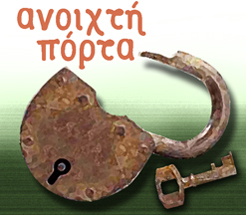
 Στηρίξτε-Ενισχύστε την iΠόρτα με τη δική σας χορηγία…
Στηρίξτε-Ενισχύστε την iΠόρτα με τη δική σας χορηγία…